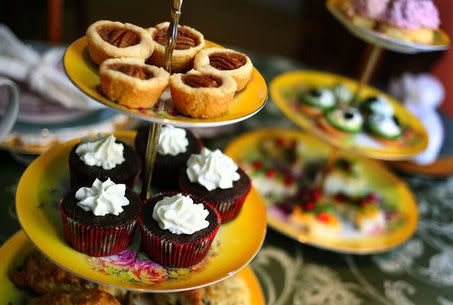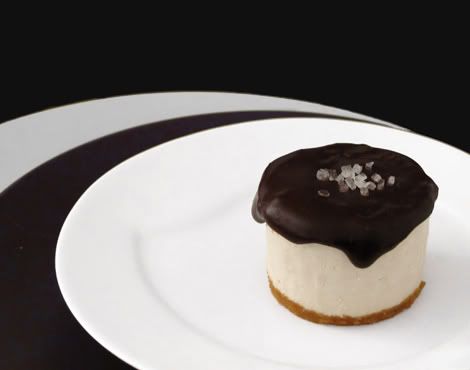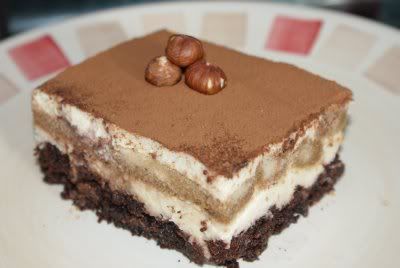My apologies if anyone gained ten pounds looking at that picture like I just did. Today's topic is not going to be about the pros and cons of choosing a good dessert--though that is one of the most important meals of the day.
In my personal opinion, every writer has a voice, a way they present their prose and stories that is distinctive to them. This "voice" is developed over years. Years. But that's a topic for another day all its own.
What many writers do not realize is what makes up a voice. It's not a one-source product. A voice is typically a combination of aspects. This can include lifestyle experience, personality, reading preference, genre niche, and the writer's own personal flair or style.
The latter is the most important, the building blocks for all the rest. So far in my reading and personal writing, I have found three styles that writers tend to lean toward. I'd love to give you some technical terms, but I'd much rather have you remember them. Hence desserts.
The first style is Cheesecake style.
Cheesecake is simple elegance. Though some may be swirled with chocolate or topped with fruit, the cheesecake is still a relatively straightforward dessert. Nothing too dramatic added, nothing extravagant used to "dress it up", this dessert is delicious just as it is.
This is the "minimalist" style. Writers in this mode write crisp, concise prose with a minimum of description, both of characters and of settings. Not that there's a lack of description, but each word and phrase is chosen with great care and rarely slips into "purple prose". Motivations are clear and sharp.
A great deal of literary fiction would fall into this category. The author that comes to mind as the epitome of such would be Ernest Hemingway and his famous 6-word story on baby shoes.
Second style would be Tiramisu.
This dessert works in layers. Each layer of chocolate, coffee-soaked lady fingers, whipped topping, and creamy filling work together as a whole. This is richer than cheesecake, but not overpowering. And best appreciated in slow but steady bites.
This is the main component of my voice. This style of writing involves layers. Descriptions are more vivid and detailed than with cheesecake, but not overwhelming. Prose is more likely to flow gently along, leading the reader forward step by step. Motivations and plot may feel slightly mingled, but clarify into distinct layers as one pushes forward.
Mystery is one genre that lends well to this style, though many other genres fit into this category as well. A famous author that is a tiramisu writer is Patrick Rothfuss with his Kingkiller Chronicles.
Last is the style of Death by Chocolate.
This dessert is by its own name, a work of decadence. Rich chocolate, creamy whipped topping, fluffy coffee cake, and crunchy toffee bars together make this dish a work of art. This would be something you might eat during an anniversary or perhaps during a date, or perhaps because of a lack of a date...
This is the lavish writing style. These are writers who use "purple prose" but to perfection. Descriptions are heavily detailed and given large attention, down to the very food a main character eats or the brand of shoes they wear. Prose is devoted more to making a world and character come alive than to the plot, many times. The plot itself winds in complex ways, with rich character interaction and an extravagant approach to emotions and events.
Most genres can fit into this category, but I see the most of this in speculative fiction, as well as somewhat in horror and thriller/suspense. I consider Dean Koontz to be an epitome of such prose.
Each of these personal styles will influence your voice and your way of presenting a story. However, just because you are a cheesecake writer doesn't mean you cannot interject a little tiramisu layers. Nor should a death by chocolate writer lament the luxurious world they've created as being too much. A good writer should mix elements of all three styles into their work.
The best thing is to be aware what style you prefer, to know where your strength is, and where you might be weak and need to incorporate more of the other "desserts" into your prose.



